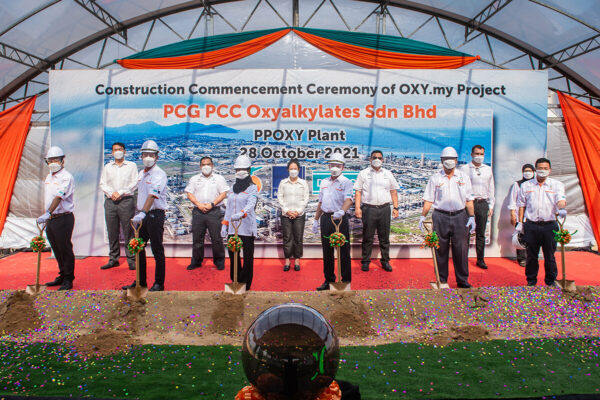Holding
By means of the introduction of a new management structure, PCC SE is embarking on long-term preparations for a generational change in the Group’s leadership. In September, the new structure consisting of an Executive Board and a Supervisory Board replaced the previous system consisting of an Administrative Board and Managing Directors. The management of operations of PCC SE now rests with a three-member Executive Board. Dr Peter Wenzel has joined the newly formed Executive Board to become its Chairman. The other two members of the Executive Board are the two former Managing Directors, Ulrike Warnecke and Dr Alfred Pelzer. Waldemar Preussner, being the only shareholder of PCC SE and until now Chairman of the Administrative Board, will be Chairman of the newly formed Supervisory Board. Dr Hans-Josef Ritzert has assumed the role of Deputy Chairman of the Supervisory Board. The Supervisory Board has been augmented by the addition of Reinhard Quint, a long-standing member of the former Administrative Board.
Projects
The joint venture between PCC SE and PETRONAS Chemicals Group Berhad (PCG) commences construction of a new oxyalkylates production plant in Malaysia. The construction site in Kertih, in the Malaysian state of Terengganu, was officially inaugurated in October 2021. The ceremony marked an important milestone for the project, the objective of which is the construction of a plant for the manufacture of specialty non-ionic surfactants and polyether polyols. At the same time, the joint venture was renamed PCG PCC Oxyalkylates Sdn. Bhd. and, along with the new company name, was also provided with a new corporate logo that symbolizes the synergies created by the unique collaboration between both chemical groups from Asia and Europe, based on the motto “East meets West”.

Holding
PCC SE starts a cooperation with Fraunhofer Institute for Solar Energy Systems ISE. The goal is the joint development of a silicon-carbon composite material to increase the performance of lithium-ion batteries. The central input for the new material is nano-silicon powder based on silicon metal, produced by PCC BakkiSilicon hf. in Iceland in an environmentally and climate-friendly manner. Silicon offers an energy density ten times higher than graphite, which is commonly used as the anode active material in lithium-ion batteries. The silicon-carbon composite material therefore significantly increases the capacity of lithium-ion batteries. This enables significantly longer ranges and shorter charging times for electric cars, for example. The two cooperation partners plan to market the innovative high-tech material as a drop-in solution for use in the manufacture of battery cells.
